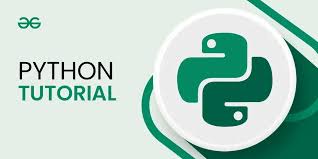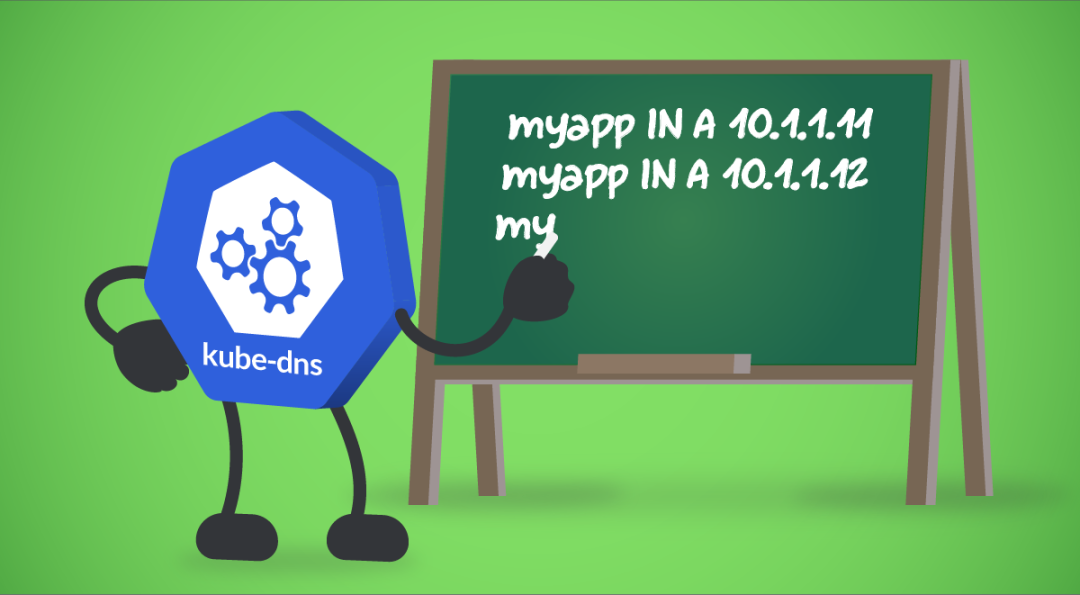一、前言 {#一、前言}
当系统的访问量增大时,相应的数据库的性能就逐渐下降。但是,大多数请求都是在重复的获取相同的数据,如果使用缓存,将结果数据放入其中可以很大程度上减轻数据库的负担,提升系统的响应速度。
本篇将介绍 Spring Boot 中缓存和 NoSQL 的使用。上篇文章 《Spring Boot 入门之持久层篇(三)》 。
二、整合缓存 {#二、整合缓存}
Spring Boot 针对不同的缓存技术实现了不同的封装,本篇主要介绍 EhCache 和 Redis 缓存。
Spring Boot 提供了以下几个注解实现声明式缓存:
| 注解 | 说明 | |----------------|-------------------------------------------| | @EnableCaching | 开启缓存功能,放在配置类或启动类上 | | @CacheConfig | 缓存配置,设置缓存名称 | | @Cacheable | 执行方法前先查询缓存是否有数据。有则直接返回缓存数据;否则查询数据再将数据放入缓存 | | @CachePut | 执行新增或更新方法后,将数据放入缓存中 | | @CacheEvict | 清除缓存 | | @Caching | 将多个缓存操作重新组合到一个方法中 |
2.1 EhCache 缓存 {#2.1--EhCache-缓存}
2.1.1 添加依赖 {#2.1.1-添加依赖}
|---------------------------|---------------------------------------------------------------------------------------------------------------------------------------------------------------------------------------------------------------------------------|
| 1 2 3 4 5 6 7 8 9 | <dependency> <groupId>org.springframework.boot</groupId> <artifactId>spring-boot-starter-cache</artifactId> </dependency> <dependency> <groupId>net.sf.ehcache</groupId> <artifactId>ehcache</artifactId> </dependency> |
2.1.2 添加配置 {#2.1.2-添加配置}
1)在 src/main/resources 目录下创建 ehcache.xml 文件,内容如下:
|------------------------------------------------------------------------------------|-------------------------------------------------------------------------------------------------------------------------------------------------------------------------------------------------------------------------------------------------------------------------------------------------------------------------------------------------------------------------------------------------------------------------------------------------------------------------------------------------------------------------------------------------------------------------------------------------------------------------------------------------------------------------------------------------------------------------------------|
| 1 2 3 4 5 6 7 8 9 10 11 12 13 14 15 16 17 18 19 20 21 22 23 24 25 26 27 28 | <?xml version="1.0" encoding="UTF-8"?> <ehcache xmlns:xsi="http://www.w3.org/2001/XMLSchema-instance" xsi:noNamespaceSchemaLocation="http://ehcache.org/ehcache.xsd"> <!-- 磁盘缓存位置 --> <diskStore path="java.io.tmpdir/ehcache"/> <!-- 默认缓存 --> <defaultCache maxEntriesLocalHeap="10000" eternal="false" timeToIdleSeconds="120" timeToLiveSeconds="120" maxEntriesLocalDisk="10000000" diskExpiryThreadIntervalSeconds="120" memoryStoreEvictionPolicy="LRU"> <persistence strategy="localTempSwap"/> </defaultCache> <!-- 自定义缓存 --> <cache name="department" maxElementsInMemory="1000" eternal="false" timeToIdleSeconds="50" timeToLiveSeconds="50" overflowToDisk="false" memoryStoreEvictionPolicy="LRU"/> </ehcache> |
说明:
|------------------------------------|-----------------------------------------------------------------------------------------------------------------------------------------------------------------------------------------------------------------------------------------------------------------------------------------------------------------------------------------------------------------------------------------------------------------------------------------------------------------------------------------------------------------------------------------------------------------------------------------------------------------------------------------------------------------------------------------------------------------------------|
| 1 2 3 4 5 6 7 8 9 10 11 12 | name:Cache 的唯一标识 maxElementsInMemory:内存中允许存储的最大的元素个数 maxElementsOnDisk:硬盘最大缓存个数,0代表无限个 clearOnFlush:内存数量最大时是否清除 eternal:缓存对象是否永久有效,如果是,超时设置将被忽略 overflowToDisk:内存不足(超过 maxElementsInMemory)时,是否启用磁盘缓存 timeToIdleSeconds:设置对象在失效前的允许闲置时间(单位:秒)。仅当eternal=false对象不是永久有效时使用,可选属性,默认值是0,也就是可闲置时间无穷大 timeToLiveSeconds:缓存数据的生存时间(TTL),也就是一个元素从构建到消亡的最大时间间隔值,这只能在元素不是永久驻留时有效,如果该值是0就意味着元素可以停顿无穷长的时间 diskPersistent:是否将缓存数据持久化到磁盘上,如果为 true,JVM 重启数据依然存在。默认值是false diskSpoolBufferSizeMB:这个参数设置DiskStore(磁盘缓存)的缓存区大小。默认是30MB。每个Cache都应该有自己的一个缓冲区 diskExpiryThreadIntervalSeconds:磁盘失效线程运行时间间隔,默认是120秒 memoryStoreEvictionPolicy:当达到 maxElementsInMemory 限制时,Ehcache 将根据指定策略清除内存。默认为 LRU(最近最少使用),其他策略有 FIFO(先进先出),LFU(较少使用) |
2)application.properties :
|-------------------------|---------------------------------------------------------------------------------------------------------------------------------------------------------------------------------|
| 1 2 3 4 5 6 7 8 | # 缓存类型(ehcache、redis) spring.cache.type=ehcache # ehcache 配置文件 spring.cache.ehcache.config=classpath:ehcache.xml # 打印日志,查看 sql logging.level.com.light.springboot=DEBUG |
2.1.3 编码 {#2.1.3-编码}
在持久层篇的基础上,结合 Mybatis 测试:
Service 层:
|------------------------------------------------------------------------------------------------------|-----------------------------------------------------------------------------------------------------------------------------------------------------------------------------------------------------------------------------------------------------------------------------------------------------------------------------------------------------------------------------------------------------------------------------------------------------------------------------------------------------------------------------------------------------------------------------------------------------------------------------------------------------------------------------------------------------------------------------------------------------------------------------------------------------------------------------------------------------------------------------------------------------------------------------------|
| 1 2 3 4 5 6 7 8 9 10 11 12 13 14 15 16 17 18 19 20 21 22 23 24 25 26 27 28 29 30 31 32 33 34 | @CacheConfig(cacheNames = "department") @Service public class DepartmentService { @Autowired private DepartmentMapper departmentMapper; @CachePut(key = "#department.id") public Department save(Department department) { System.out.println("保存 id=" + department.getId() + " 的数据"); this.departmentMapper.insert(department); return department; } @CachePut(key = "#department.id") public Department update(Department department) { System.out.println("修改 id=" + department.getId() + " 的数据"); this.departmentMapper.update(department); return department; } @Cacheable(key = "#id") public Department getDepartmentById(Integer id) { System.out.println("获取 id=" + id + " 的数据"); Department department = this.departmentMapper.getById(id); return department; } @CacheEvict(key = "#id") public void delete(Integer id) { System.out.println("删除 id=" + id + " 的数据"); this.departmentMapper.deleteById(id); } } |
控制层:
|---------------------------------------------------------------------------------------------------------------------------------------------------|-----------------------------------------------------------------------------------------------------------------------------------------------------------------------------------------------------------------------------------------------------------------------------------------------------------------------------------------------------------------------------------------------------------------------------------------------------------------------------------------------------------------------------------------------------------------------------------------------------------------------------------------------------------------------------------------------------------------------------------------------------------------------------------------------------------------------------------------------------------------------------------------------------------------------------------------------------------------------------------------------------------------------------------------------------------------------------------------------------------------------------------------------------------------------------------------------------------------------------------------------|
| 1 2 3 4 5 6 7 8 9 10 11 12 13 14 15 16 17 18 19 20 21 22 23 24 25 26 27 28 29 30 31 32 33 34 35 36 37 38 39 40 41 42 43 44 45 46 47 48 49 | @Controller @RequestMapping("department") @ResponseBody public class DepartmentController { @Autowired private DepartmentService departmentService; @RequestMapping("save") public Map<String,Object> save(Department department) { this.departmentService.save(department); Map<String,Object> map = new HashMap<String,Object>(); map.put("code", "200"); map.put("msg", "保存成功"); return map; } @RequestMapping("get/{id}") public Map<String,Object> get(@PathVariable("id") Integer id) { Department department = this.departmentService.getDepartmentById(id); Map<String,Object> map = new HashMap<String,Object>(); map.put("code", "200"); map.put("msg", "获取成功"); map.put("data", department); return map; } @RequestMapping("update") public Map<String,Object> update(Department department) { this.departmentService.update(department); Map<String,Object> map = new HashMap<String,Object>(); map.put("code", "200"); map.put("msg", "修改成功"); return map; } @RequestMapping("delete/{id}") public Map<String,Object> delete(@PathVariable("id") Integer id) { this.departmentService.delete(id); Map<String,Object> map = new HashMap<String,Object>(); map.put("code", "200"); map.put("msg", "删除成功"); return map; } } |
启动类:
添加 @EnableCaching 注解,开启缓存功能。
|-------------------------|-----------------------------------------------------------------------------------------------------------------------------------------------------------------------------------------------------|
| 1 2 3 4 5 6 7 8 | @EnableCaching @SpringBootApplication public class SpringbootNosqlApplication { public static void main(String[] args) { SpringApplication.run(SpringbootNosqlApplication.class, args); } } |
2.1.4 测试说明 {#2.1.4-测试说明}
由于 ehcache 缓存是存储在应用的内存中,如果使用 junit 测试,方法执行完毕缓存就释放了,无法正常测试缓存效果,因此测试使用发起 http 请求的形式。
- 发起保存请求:
|-----------------|------------------------------------------------------------------------------------------------------------------------------------------------------------------------------------------------------------------------------------------------------------------------------------------------------------------------------------------------------------------------------------------------------------------------------------------------------------------------------------|
| 1 2 3 4 | 保存 id=2 的数据 2017-12-06 14:50:48.800 DEBUG 680 --- [nio-8081-exec-7] c.l.s.dao.DepartmentMapper.insert : ==> Preparing: insert into department(id,name,descr) values(?,?,?) 2017-12-06 14:50:48.801 DEBUG 680 --- [nio-8081-exec-7] c.l.s.dao.DepartmentMapper.insert : ==> Parameters: 2(Integer), Ehcache 部门(String), Ehcache(String) 2017-12-06 14:50:48.868 DEBUG 680 --- [nio-8081-exec-7] c.l.s.dao.DepartmentMapper.insert : <== Updates: 1 |
-
保存成功后,立刻发起查询请求,没有日志打印,但返回对象数据,说明数据是从缓存中获取。
-
发起修改请求:
|-----------------|------------------------------------------------------------------------------------------------------------------------------------------------------------------------------------------------------------------------------------------------------------------------------------------------------------------------------------------------------------------------------------------------------------------------------------------------------------------------------------------|
| 1 2 3 4 | 修改 id=2 的数据 2017-12-06 14:51:16.588 DEBUG 680 --- [nio-8081-exec-8] c.l.s.dao.DepartmentMapper.update : ==> Preparing: update department set name = ? , descr = ? where id = ? 2017-12-06 14:51:16.589 DEBUG 680 --- [nio-8081-exec-8] c.l.s.dao.DepartmentMapper.update : ==> Parameters: Ehcache 部门2(String), Ehcache2(String), 2(Integer) 2017-12-06 14:51:16.657 DEBUG 680 --- [nio-8081-exec-8] c.l.s.dao.DepartmentMapper.update : <== Updates: 1 |
-
修改成功后,立刻发起查询请求,没有日志打印,但返回修改后的对象数据,说明缓存中的数据已经同步。
-
发起删除请求:
|-----------------|-------------------------------------------------------------------------------------------------------------------------------------------------------------------------------------------------------------------------------------------------------------------------------------------------------------------------------------------------------------------------------------------------------------------------------|
| 1 2 3 4 | 删除 id=2 的数据 2017-12-06 14:52:07.572 DEBUG 680 --- [nio-8081-exec-1] c.l.s.dao.DepartmentMapper.deleteById : ==> Preparing: delete from department where id = ? 2017-12-06 14:52:07.572 DEBUG 680 --- [nio-8081-exec-1] c.l.s.dao.DepartmentMapper.deleteById : ==> Parameters: 2(Integer) 2017-12-06 14:52:07.613 DEBUG 680 --- [nio-8081-exec-1] c.l.s.dao.DepartmentMapper.deleteById : <== Updates: 1 |
- 删除成功后,立刻发起查询请求,控制台打印 sql 语句,说明缓存数据被删除,需要查询数据库。
|-----------------|---------------------------------------------------------------------------------------------------------------------------------------------------------------------------------------------------------------------------------------------------------------------------------------------------------------------------------------------------------------------------------------------------------------------------------------------|
| 1 2 3 4 | 获取 id=2 的数据 2017-12-06 14:52:40.324 DEBUG 680 --- [nio-8081-exec-3] c.l.s.dao.DepartmentMapper.getById : ==> Preparing: select id,name,descr from department where id = ? 2017-12-06 14:52:40.325 DEBUG 680 --- [nio-8081-exec-3] c.l.s.dao.DepartmentMapper.getById : ==> Parameters: 2(Integer) 2017-12-06 14:52:40.328 DEBUG 680 --- [nio-8081-exec-3] c.l.s.dao.DepartmentMapper.getById : <== Total: 0 |
2.2 Redis 缓存 {#2.2-Redis-缓存}
2.2.1 添加依赖 {#2.2.1-添加依赖}
|-----------------|----------------------------------------------------------------------------------------------------------------------------------------|
| 1 2 3 4 | <dependency> <groupId>org.springframework.boot</groupId> <artifactId>spring-boot-starter-data-redis</artifactId> </dependency> |
2.2.2 添加配置 {#2.2.2-添加配置}
application.properties :
|------------------------------------|------------------------------------------------------------------------------------------------------------------------------------------------------------------------------------------------------------------------------------------------------------------|
| 1 2 3 4 5 6 7 8 9 10 11 12 | # redis 配置 spring.redis.host=192.168.2.11 spring.redis.port=6379 spring.redis.password=redis123 # 缓存过期时间,单位毫秒 spring.cache.redis.time-to-live=60000 # 缓存类型(ehcache、redis) spring.cache.type=redis # 打印日志,查看 sql logging.level.com.light.springboot=DEBUG |
注意:spring.cache.type=redis,缓存类型设置成 redis。
完成上边 2 个步骤后,其他步骤与测试 Ehcache 时的步骤一致。
测试结果也一致,此处省略。
三、整合 Redis {#三、整合-Redis}
上一个小节其实已经介绍了 Spring Boot 整合 Redis 的内容。
在添加 redis 依赖包启动项目后,Spring Boot 会自动配置 RedisCacheManger 和 RedisTemplate 的 Bean。如果开发者不想使用 Spring Boot 写好的 Redis 缓存,而是想使用其 API 自己实现缓存功能、消息队列或分布式锁之类的需求时,可以继续往下浏览。
Spring Data Redis 为我们提供 RedisTemplate 和 StringRedisTemplate 两个模板进行数据操作,它们主要 的访问方法如下:
| 方法 | 说明 | |---------------|---------------| | opsForValue() | 操作简单属性的数据 | | opsForList() | 操作含有 list 的数据 | | opsForSet() | 操作含有 set 的数据 | | opsForZSet() | 操作含有 zset 的数据 | | opsForHash() | 操作含有 hash 的数据 |
3.1 添加依赖 {#3.1-添加依赖}
|-----------------|----------------------------------------------------------------------------------------------------------------------------------------|
| 1 2 3 4 | <dependency> <groupId>org.springframework.boot</groupId> <artifactId>spring-boot-starter-data-redis</artifactId> </dependency> |
3.2 配置连接 {#3.2-配置连接}
|---------------|----------------------------------------------------------------------------------------------|
| 1 2 3 | spring.redis.host=192.168.2.11 spring.redis.port=6379 spring.redis.password=redis123 |
3.3 编码 {#3.3-编码}
|------------------------------------------------------|-----------------------------------------------------------------------------------------------------------------------------------------------------------------------------------------------------------------------------------------------------------------------------------------------------------------------------------------------------------------------------------|
| 1 2 3 4 5 6 7 8 9 10 11 12 13 14 15 16 17 18 | @Component public class RedisDao { @Autowired private StringRedisTemplate stringRedisTemplate; public void set(String key, String value) { this.stringRedisTemplate.opsForValue().set(key, value); } public String get(String key) { return this.stringRedisTemplate.opsForValue().get(key); } public void delete(String key) { this.stringRedisTemplate.delete(key); } } |
3.4 测试 {#3.4-测试}
|------------------------------------------------------------------------------------|---------------------------------------------------------------------------------------------------------------------------------------------------------------------------------------------------------------------------------------------------------------------------------------------------------------------------------------------------------------------------------------------------------------------------------------------------|
| 1 2 3 4 5 6 7 8 9 10 11 12 13 14 15 16 17 18 19 20 21 22 23 24 25 26 27 28 | @RunWith(SpringRunner.class) @SpringBootTest public class RedisDaoTest { @Autowired private RedisDao redisDao; @Test public void testSet() { String key = "name"; String value = "zhangsan"; this.redisDao.set(key, value); } @Test public void testGet() { String key = "name"; String value = this.redisDao.get(key); System.out.println(value); } @Test public void testDelete() { String key = "name"; this.redisDao.delete(key); } } |
测试结果省略...
四、整合 MongoDB {#四、整合-MongoDB}
Spring Data MongoDB 提供了 MongoTemplate 模板 和 Repository 让开发者进行数据访问。
4.1 添加依赖 {#4.1-添加依赖}
|-----------------|------------------------------------------------------------------------------------------------------------------------------------------|
| 1 2 3 4 | <dependency> <groupId>org.springframework.boot</groupId> <artifactId>spring-boot-starter-data-mongodb</artifactId> </dependency> |
4.2 配置连接 {#4.2-配置连接}
|---------------|----------------------------------------------------------------------------------------------------------------|
| 1 2 3 | spring.data.mongodb.host=192.168.2.31 spring.data.mongodb.port=27017 spring.data.mongodb.database=test |
4.3 编码 {#4.3-编码}
4.3.1 使用 MongoTemplate {#4.3.1-使用-MongoTemplate}
|------------------------------------------------------------------------------------------------------------|-----------------------------------------------------------------------------------------------------------------------------------------------------------------------------------------------------------------------------------------------------------------------------------------------------------------------------------------------------------------------------------------------------------------------------------------------------------------------------------------------------------------------------------------------------------------------------------------------------------------------------------------------------------------------------------------------------------------------------------------------------------------------------------------------------------------------------------------------------------------------------------------------------------------------------------------------------------------------------------|
| 1 2 3 4 5 6 7 8 9 10 11 12 13 14 15 16 17 18 19 20 21 22 23 24 25 26 27 28 29 30 31 32 33 34 35 36 | @Component public class MongodbDao { @Autowired private MongoTemplate mongoTemplate; public void insert(Department department) { this.mongoTemplate.insert(department); } public void deleteById(int id) { Criteria criteria = Criteria.where("id").is(id); Query query = new Query(criteria); this.mongoTemplate.remove(query, Department.class); } public void update(Department department) { Criteria criteria = Criteria.where("id").is(department.getId()); Query query = new Query(criteria); Update update = new Update(); update.set("descr", department.getDescr()); this.mongoTemplate.updateMulti(query, update, Department.class); } public Department getById(int id) { Criteria criteria = Criteria.where("id").is(id); Query query = new Query(criteria); return this.mongoTemplate.findOne(query, Department.class); } public List<Department> getAll() { List<Department> userList = this.mongoTemplate.findAll(Department.class); return userList; } } |
4.3.2 使用 Repository {#4.3.2-使用-Repository}
|-----------------|------------------------------------------------------------------------------------------------|
| 1 2 3 4 | public interface DepartmentRepository extends MongoRepository<Department, Integer> { } |
测试方式与 Redis 测试大同小异,测试结果省略...
 51工具盒子
51工具盒子






